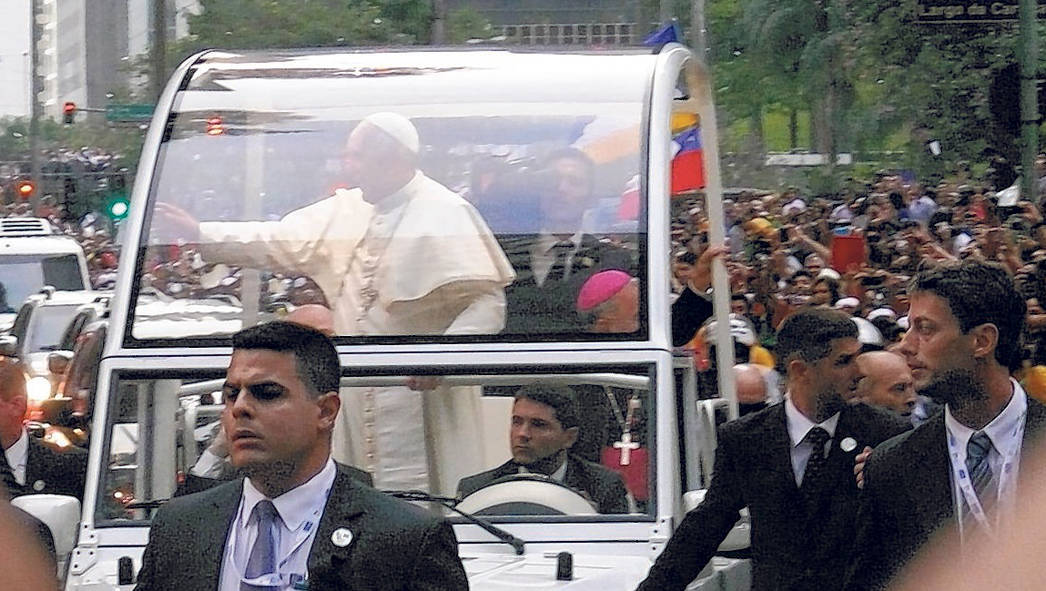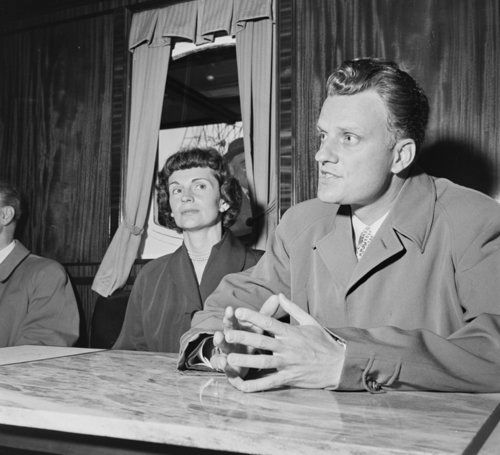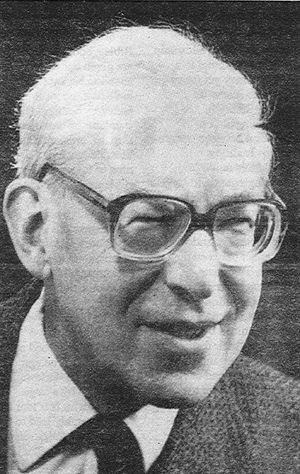Dr J. I. Packer has put us all in his debt through his writings. Fundamentalism and the Word of God, Evangelism and the Sovereignty of God, Knowing God, God’s Words, Hot Tub Religion and Among God’s Giants should be on every Christian’s shelves. He writes with style, warmth and wit. We are personally indebted for past help and friendship.
Next year the youthful Packer will be seventy years of age and will have retired, one presumes, from his chair of theology at Regent College, Vancouver, Canada. He has been a model theologian in so many areas, and that is why we have taken special interest in his relationship with Rome and the document he signed recently with seven Roman Catholic theologians. Is he being a role model here? For example, should evangelical students regularly hold joint meetings with the Catholic Society? Certainly Protestants should talk to, love and pray for Roman Catholics. But meetings and signed declarations are always the stuff of misunderstanding. In a long essay in Christianity Today (12 December) entitled ‘Why I signed it’, Dr Packer gave his reasons for being a co-signatory of the Evangelicals and Catholics Together document. The criticism he has received he sees as motivated in part by evangelical love for isolationism, and rivalry fed by mutual suspicion and inflammatory talk. ‘So I ought to have anticipated that some Protestants would say bleak, skewed, fearful, and fear-driven things.’ Perhaps some of us were motivated by the plain teaching of Scripture as to the Christian response to error. But Packer seeks to put the record straight as to his reasons for his agreements with Roman Catholics.

His opposition to Rome
Dr Packer says, ‘I could not become a Roman Catholic because of certain basic tenets to which the Roman system, as such, is committed. Rome’s claim to be the only institution that can without qualification be called the church of Christ is theologically flawed, for it misconceives the nature of the church as the New Testament explains it. The claim is historically flawed, too, for the papacy, which is supposed to be of the church’s essence, was a relatively late development …
‘Also, developed Roman teaching on the mass and on merit cuts across Paul’s doctrine of justification in and through Christ by faith. And all forms of the Mary cult, the invoking of saints, the belief in purgatory, and the disbursing of indulgences (which still goes on) damp down the full assurance to which, according to Scripture, justification should lead through the ministry of the Holy Spirit.
‘Finally, the infallibility claimed for all conciliar and some papal pronouncements, and the insistence that the faithful should take their beliefs from the church as such rather than from the Bible as such, make self-correction, as ordinarily understood, impossible. The assumption that the church is never wrong on basics is very cramping. So I find the Roman communion, as it stands, unacceptable, just as much as more than four-and-a-half centuries of Protestants did before me.’
That is Dr Packer’s attitude to Rome. Good, though it is a pretty economic list of Rome’s errors. The papacy and sacerdotalism affect everything that Rome teaches and does.

The New Testament response to error
Then there are New Testament responses to unrepented error which are made very clear by Christ’s apostles – which leaders in the church may not disobey: ‘I urge you, brothers, to watch out for those who cause divisions and put obstacles in your way that are contrary to the teaching you have learned. Keep away from them. For such people are not serving our Lord Jesus Christ’ (Romans 16:17). ‘If anyone does not obey our instruction in this letter, take special note of him. Do not associate with him, in order that he may feel ashamed. Yet do not regard him as an enemy, but warn him as a brother’ (2 Thessalonians 3:14-15). ‘Have nothing to do with godless myths and old wives’ tales; rather, train yourself to be godly’ (1 Timothy 4:7). ‘Those who sin are to be rebuked publicly, so that the others may take warning’ (1 Timothy 5:20). ‘Turn away from godless chatter and the opposing ideas of what is falsely called knowledge, which some have professed and in so doing have wandered from the faith’ (1 Timothy 6:20,21). ‘Warn a divisive person once, and then warn him a second time. After that, have nothing to do with him’ (Titus 3:10). ‘Be on your guard so that you may not be carried away by the error of lawless men and fall from your secure position. But grow in the grace and knowledge of our Lord and Saviour’ (2 Peter 3:17-18).
Nowhere in the Bible are we told to hold joint consultations with those who are unrepentant in their promulgation of error in order to see and state what common ground is shared. Rather there is a Christian duty to separate from those who will not let go of error or immorality.
In the light of the above Scriptures evangelical Protestants have reformed their church and separated from Rome. For Christians to he linked in association with ministers who do not preach the gospel of Christ is, they believe, to defy the words of the Saviour they love. It is error that divides Christians, and to be in fellowship with those who promote it is to condone their proselytism.
Is there justification for co-operating?
Yet Dr Packer justifies his co-operation with Roman clerics thus:
1. There are Christians in the Roman Catholics Church. Of course. But how few confess that their way to God is by the finished work of Christ alone and that they deplore the cult of Mary and the thread of purgatory. For Packer the acknowledgement that there are Christians in the Roman communion brings the obligation that we should not do anything separately that we can do together. ‘Fellowship in faith results in fellowship in service … togetherness in mission is appropriate.’ That is not how the New Testament responds to deviations as serious as Rome’s. Too much of the essence of revealed religion is compromised by working in mission with those who preach a sacerdotalist salvation. We show our affection for any Roman Christians we meet by kindliness, good works, praying for them and co-operation in a ministry of mercy – the floods of Europe damage Protestant and Roman Catholic homes. Dr Packer lists such areas as upholding religious freedom, sanctity of life, family values, parental choice in education, and moral standards in society in which we can co-operate. We can surely support that, and not with Roman Catholics only but with anyone who holds those convictions.

2. Dr Packer says, ‘Billy Graham’s co-operative evangelism, in which all the churches in an area, of whatever stripe, are invited to share, is well established on today’s Christian scene.’ But ever since the New York campaign in the early 1950s when Billy Graham insisted he would only work with all the churches of a community, liberal and evangelical, Catholic and Protestant, that policy has resulted in splitting Christians between their churches and within their congregations. The plea for a doctrinal basis, such as that of the B.E.C. to be acknowledged by all who stand on the Graham platform, or who counsel those who go forward, has always been rejected. Graham’s policy has been disastrous. Those who function in terms of another gospel are brought in and platformed as representatives and servants of New Testament Christianity. They are to be evangelized not evangelizers.
3. ‘Charismatic get togethers, some of them one-off, some of them regular, and some of them huge, where the distinction between Protestant and Catholic vanishes in a Christ-centred unity of experience are well established,’ says Dr Packer. But can there be unity in fellowship where there is no unity in truth? Unity in experience is the most easily counterfeited phenomenon to true Christianity. We long for a working of the Holy Spirit, and will not grieve or quench his coming by endorsing worship and preaching which denies the word which is his breath.
Dr Packer does concede, ‘Whether it was wisest to write this document in a flowing, rhetorical, open-textured way, so that it reads like a political speech; whether it would have helped to have professional evangelical theologians involved in the drafting process (there were none); and whether any particular rearrangement, additions, and tightenings up would make it more persuasive to its suspicious critics – all are questions we may leave on one side. Evangelicals and Catholics Together’s tone and thrust are right.’
That is the highly questionable conclusion. It would be much better if Dr Packer were to use his friendship with Roman Catholics in writing a loving treatise in which he could point out their deviation from the truth and call them back to apostolic religion. How useful that book might be in the place of another confusing jointly-authored statement with sacramentalists.
The bigger issue raised by the response of Dr Packer to Rome is what should our response be to those who want to remain in friendship with us, preach in our pulpits, speak at our conferences, write for our magazines and publishing houses, and then, also intend to maintain an ecclesiastical fellowship and cooperation with those who, at very crucial areas, are opposing New Testament Christianity? Who wants the label of uncharitable hyper-separatist? Certainly we should keep talking to these brothers, and read and sell their books on other subjects, but appointing them to teach at our meetings suggests a wider approval which cannot exist, and encourages division, further polarizing a divided Christianity. For example, a wife would say to her husband, ‘Your friendship with that other woman seems to me to be dangerously intimate. It is putting a strain on our relationship and it is not necessary. Either we are uniquely joined together and we always show it, or this friendship of yours is going to end in our drifting apart. You have to choose.’





